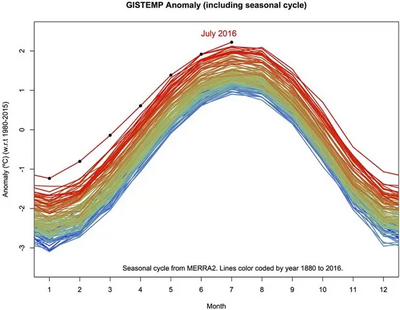Why Politicians cant stop Climate Change

Now, I don't want to launch into a political rant but it often appears that politicians are only concerned with winning the popular support of the electorate. They avoid confronting the difficult issues and students of BBC sitcoms know that the words most likely to strike fear into the heart of Jim Hacker MP, were: " … a very brave decision minister."
In some ways, this is not necessarily a bad thing. It broadly supports continuity and stability, avoiding the potential calamity of politicians who pursue their own passing whims with little regard to the hopes and aspirations of the voting public. However, effective democracy does presume that people understand the implications of the policies that their governments pursue. A successful society needs an electorate that is informed, critical and motivated to participate in the political process.
The democratic, political process is in danger when politicians offer sound-bite policies to a poorly informed electorate. And no, this is not a rant about Brexit or political developments in America. This is a warning that all democracies have this flaw and we ignore it at our peril.
Now, ask yourself how well informed the general electorate is about global warming. For example, do people believe that global warming is largely caused by human activity? Yes, probably. Do people believe that the current trajectory of climate change could pass a tipping point within fifteen years, beyond which, the impact of climate change could become irreversible? Probably not - because if they did, then we would expect them to be demanding governments do something about it.
There are three more questions we should ask ourselves: Could global warming cause the collapse of human civilization? If yes, can it be avoided? And finally, the tricky one, do we have confidence that our political leaders will take the brave decisions needed to avert catastrophe? The answers to these questions are: Yes. Maybe. And only if the electorate understand the issues and demand that government take action.
Anyone who is surprised by the assertion that global temperatures could pass a tipping point within fifteen years might be interested in the following summary of data provided by the Intergovernmental Panel on Climate Change, (IPCC).
From a base point in 1870, it has been calculated that global warming will reach the 2 degree target when CO2 emissions exceed a total of 2,900 billion tonnes. Approximately half this quantity was produced during the period 1870 to 2000. In the period 2000 - 2015, one third of the remaining carbon budget was produced. It is projected that the remaining volumes will be produced during the period 2015 - 2030.
Obviously, if CO2 emissions increase faster than projected, (e.g. due to a relaxation of environmental regulations) or the estimated 2 degree Celsius figure was set optimistically high, then the potential tipping point will be reached sooner.
To put this article into its simplest form: Climate change is a reality. The consequences could be catastrophic for the future of mankind. The major causes are man-made and preventing a global catastrophe is not simply a technological problem but a social engagement problem.
Averting disaster will require a process of 'participative change', enabling the electorate to understand the issues, support the transition to a low carbon future and become advocates for change. Unfortunately, not only are most governments failing to engage the public but they are largely ignoring environmental issues and in some cases there is a worrying sense of denial.
But surely - you may be thinking - Governments are working with the UN to resolve the problem of climate change. And yes, it is true that for over twenty years the UN has been convening the 'Conference of Parties' (COP) where leaders from across the world meet to decide what they are going to do about climate change. Two years ago, COP 21 in Paris had a "historical breakthrough", with each nation offering a limit on their green house gas emissions. Just a couple of problems: a). The limits were voluntary. b). The sum total of their voluntary emission targets is projected to push up global temperatures by 3 - 4 degrees Centigrade. This can hardly be claimed as an unmitigated success since any rise above 2 degrees Centigrade could take us past the tipping point.
So, here we are in 2017. The UN has overseen twenty years of talks, prevarication and empty promises until finally we are offered the "breakthrough" of a voluntary target that is guaranteed to exceed the critical threshold. Unfortunately, it is unlikely that even these inadequate, voluntary targets will be met, primarily because many governments are reluctant to implement the necessary action to reduce carbon emissions, as this would risk upsetting various vested interests.
Clearly, low carbon strategies require some brave decisions but unless we take urgent action, we will soon pass the tipping point. Achieving a transition to a low carbon society should be the paramount objective for every government. Ignoring the problem is not acceptable.
Preventing further increases in global temperatures is not primarily a technical challenge - we have the capability to dramatically cut carbon emissions - it is a political challenge. Whilst the Lib Dems may not be in power, we can work to build a groundswell of informed opinion that puts pressure on the current government. Our focus now should be to build the capability to engage the electorate in a complex debate that touches on all aspects of our society, our values and our relationship with the natural environment.
Sometimes it might feel as though the situation is overwhelming but if you need cheering up, just remember, Brexit is a vanity project compared to the need to transition to a low carbon society … but don't get me started on a political rant.
Richard Joy
(GLD, Vice-Chair, Political)
